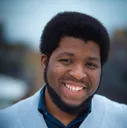Stay in the Loop
BSR publishes on a weekly schedule, with an email newsletter every Wednesday and Thursday morning. There’s no paywall, and subscribing is always free.
Feels like summer
Some people dread the heat—with good reason

It was another incandescent Friday in July 2005 when I got caught in crossfire. While I was walking home from the corner store to pick up food for my mom, my sister, and me, shots went off. I ducked behind a car and in a flash it was over. But it wasn’t over.
The fire fell quiet and I peeked up, seeing the shooter run off around the bend and down the street—he wasn’t very fast. Across from me, a woman was on the ground. Not moving. A man, apparently her significant other, was hysterical. He looked like the kind of man who carried himself with the poise and calm that are common in the neighborhood. All that broke down as police and an ambulance came far too late. The news later reported that the bullet wasn’t meant for her, but for him. She was pronounced dead at the scene.
It felt like summer.
The quiet before the storm
Sometimes a stillness settles in during a storm, before the worst of it comes. For me, the heat is a constant storm. On that day in 2005, the stillness was unsettled by an abrupt misfire. A sidewalk memorial went up across the street from my house where the gunman had killed the woman. I remember watching it from my dining-room window days later when it was raining, worried that her memory would rust or fade away.
Friends of mine are taken aback when I say how depressed I get during the summer. They’re baffled when I say that winter is my jam, and that sometimes in the summer it’s impossible for me to get out of bed. Seriously, if it weren’t for my friends heedfully hitting me up to play Pokemon Go together in summer 2016, I don’t think I’d have left my apartment for weeks on end.
Nonetheless, summer is the season I bewailed the passing of my father, grandfather, and grandmother. Summer is the season I endure more breakdowns and anxiety. Summer is the season I ached at America’s imminent unraveling during a tumultuous election season.
It wasn’t a surprise to me, though. It was summer.
SAD in the summer
Reverse seasonal affective disorder affects less than one-tenth of all seasonal affective disorder (SAD) cases. I didn’t know that reverse SAD was a thing until a few weeks ago. I’m not here to self-diagnose, but hearing about this casts light, albeit fractured, on my experience and my identity—ultimately helping me find confidence and balance in it.
People affected by summer SAD often feel manic. They may also be misdiagnosed with depression or anxiety. The shift isn’t just in temperature; it’s in attitude. People speak differently. Their paces become noticeably uncharacteristic. You can even see it in strangers. The aggression, or the regression, for that one-tenth.
The aggression, though? That fumes out, incentivizing me to stay inside. To be still.
Comfort in odd numbers
According to a New York Times report, in Philadelphia, there were 2.6 shooting victims per day on average when it was “cold,” 3.4 on “pleasant” days, and 4.4 on “hot” ones. This was from data collected between 2015 and 2018, with cold days defined as under 50 degrees Fahrenheit; pleasant days between 50 and 84 degrees, and hot days 84 degrees and above.
Outside of Philadelphia, Chicago and Baltimore saw spikes in crime and murder rates especially in 2015 and 2016. Every minute in the summer of 2016 seemed occupied by reports of hate crimes and mass shootings.
“The period between Memorial Day and Labor Day weekend—93 days—left more than 4,100 Americans dead from gun homicides and unintentional discharges, according to the nonprofit, nonpartisan Gun Violence Archive (GVA). More than 8,650 others were wounded,” the Trace reports. That’s an average of 44 dead and 93 wounded per day.
I was almost one of them. On any day, any of us could be—or have already been.
These numbers about violence and seasonal depression are sobering—and validating. They quantify my feelings. Summer is indeed long and painful, especially as it now begins in May and reaches into October, like when a heat wave sparked the worst panic attack I ever had weeks before Halloween. The sum of these parts is disquieting.
For a time, when these feelings arose, I’d hide away to rationalize on my own. But now, I’m rationalizing out loud in hopes of relating with others, especially those who have been qualified merely by statistics and studies. You can’t balm the stillness, but you can discern it.
Sign up for our newsletter
All of the week's new articles, all in one place. Sign up for the free weekly BSR newsletters, and don't miss a conversation.

 Kyle V. Hiller
Kyle V. Hiller